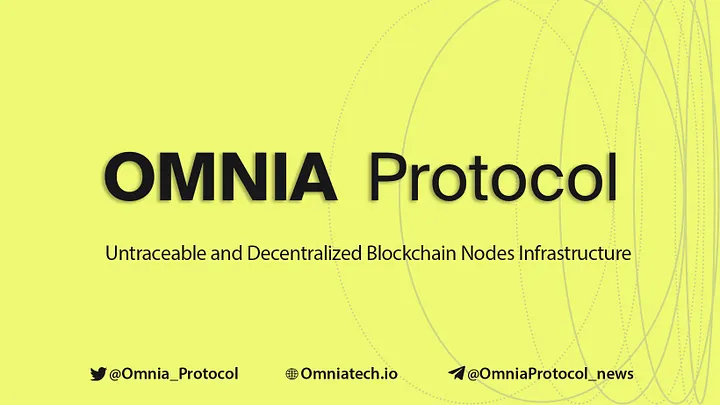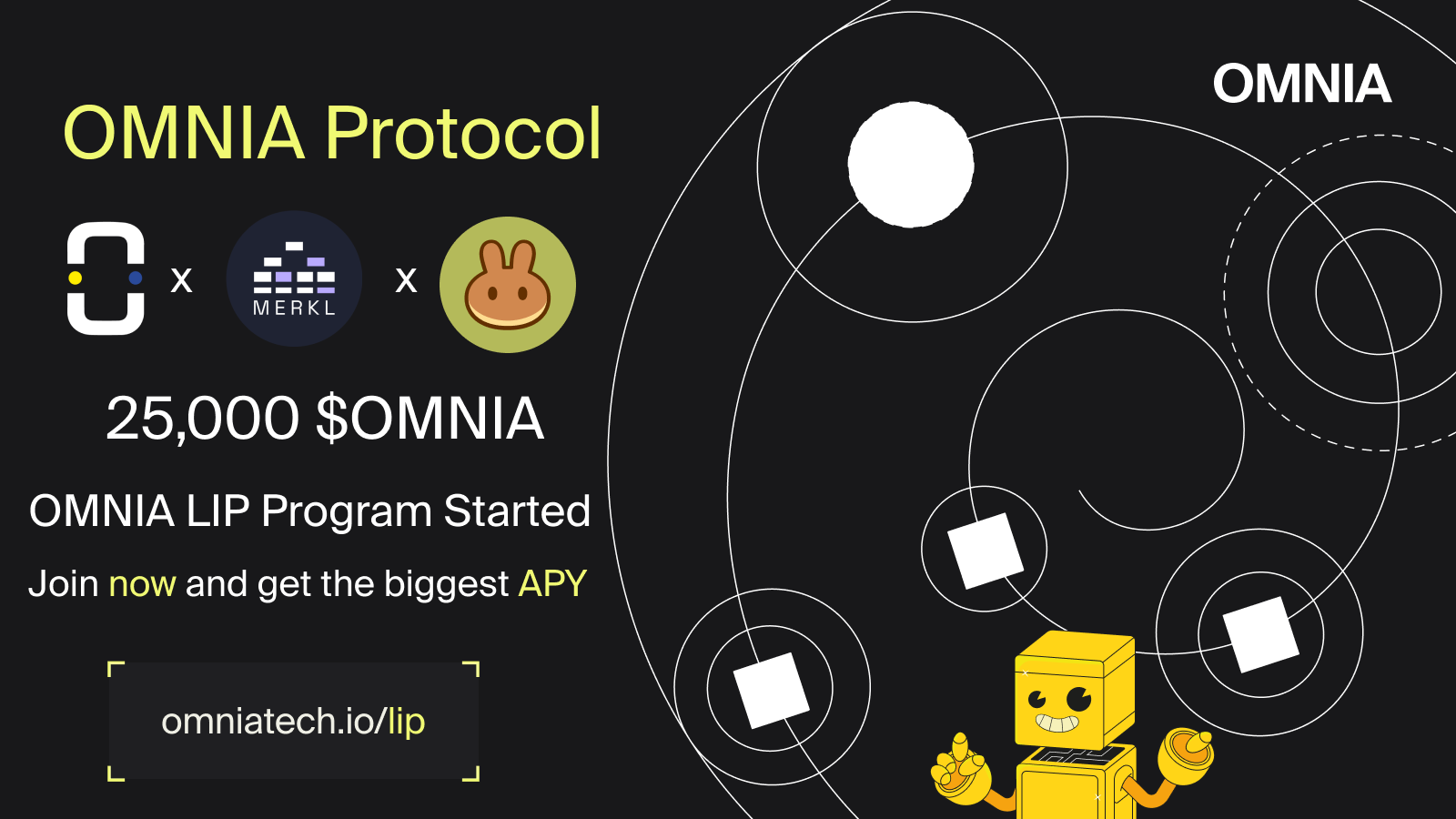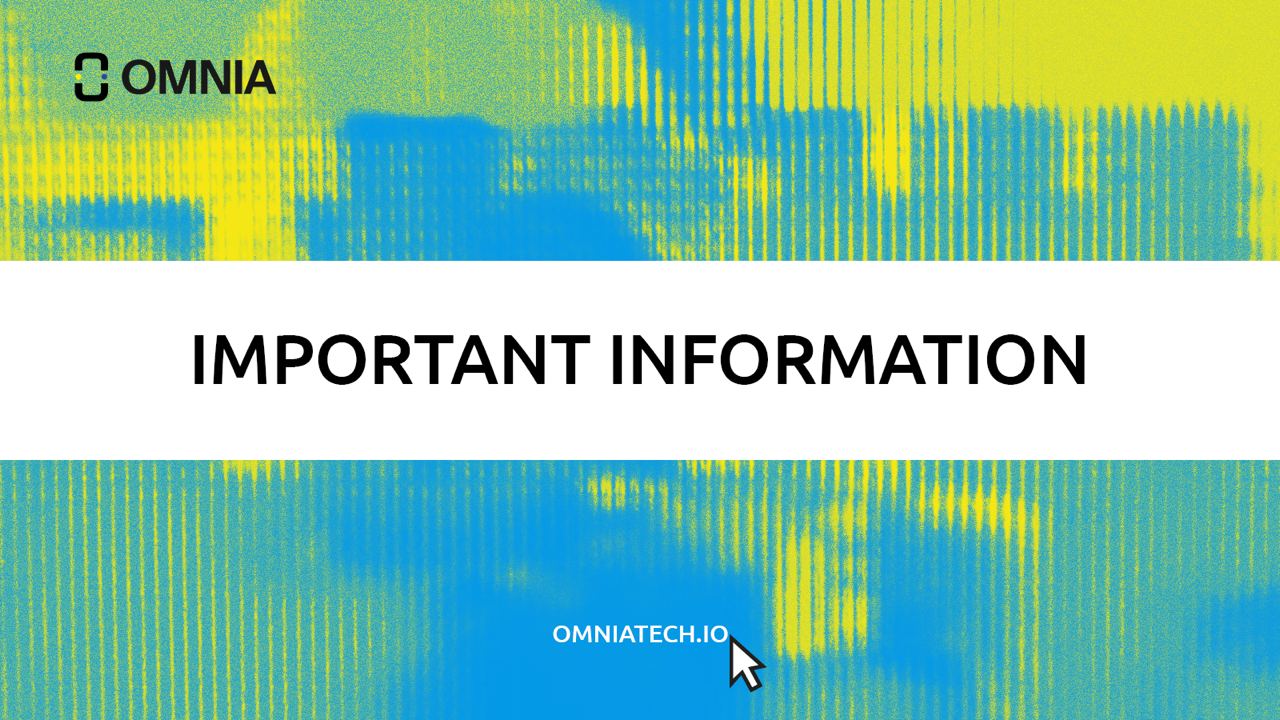
How is OMNIA Better ?
Untraceable and Decentralized Blockchain Nodes Infrastructure
Before making any comparison, it is important to understand the point of reference. This is mainly composed of two aspects: privacy and the infrastructure architecture — centralized/decentralized.
Node providers status quo
Nowadays, access to blockchain infrastructure is concentrated in the hands of a few corporations. These corporations provide some of the biggest blockchain projects and businesses with easy access to the blockchain’s applications and services, as well as giving its developers the necessary scale and tools needed to deploy smart contract-based applications.
Instead of having to build and maintain their own independent nodes, companies can simply use this type of third party service, much like tech giants like Netflix and Spotify use Amazon AWS’s cloud services.
The bottom line is that most of the companies and developers choose these type of centralized services for their simplicity and faster time-to-market.
But what’s the hidden downside for this “convenient” option ?
Well, first and foremost, the most impactful aspect is the centralized architecture slowly building up, which can cause outages due to being a central point of failure.
A known Ethereum outage revived an old discussion over whether the world’s second largest cryptocurrency is truly decentralized, due to the behavior of its developers and what some see as an over-reliance on third parties for services. In the same context, The Bitfinex’s CTO Paolo Ardoino also said that exchanges should run their own nodes to avoid falling in the paradoxical “trap” of depending on centralized entities while operating in a decentralized industry like crypto. However, running a personal node is not a simple option for everyone.
The second hidden risk is the vendor lock-in practice that we have already seen at these corporations: from generating non-necessary API wrappers for smart contracts interfaces to transaction management services that merely track new blocks and re-tries with higher fees (at the cost of having the private keys managed by others). In the long term, the existing clients of these centralized providers cannot easily move to a different vendor without substantial costs, legal constraints or technical incompatibilities.
While we understand the added value of these services, we think that they must have a foundation in transparency, interoperability and long-term sustainability, in the same way the decentralized communities have successfully fueled the blockchain technology adoption so far.
By having a decentralized infrastructure architecture, Omnia creates a layer of trust between applications and the blockchain, where interoperability is key and rewards are distributed back to the community.
We strongly believe that the same simplicity and ease of use can be achieved in a decentralized manner.
Current state of blockchain privacy
Most of the privacy aspects in blockchains were addressed within on-chain solutions such as the use of Zero Knowledge Proofs or Ring Signatures. However, when it comes to accessing the blockchain, off-chain privacy concerns are not yet properly addressed with tailored solutions specific to this technology.
It is crucial to understand how lacking current approaches are with regards to maintaining privacy. For example, even though someone uses Monero, the metadata (IP addresses, timing patterns, locations, etc) is visible to everyone from the Internet Service Provider (ISP) to the wallet itself. In a data-driven world, collectively known as surveillance capitalism, metadata is way more valuable than the content, because understanding and predicting user behaviour is now the primary business model of the Internet.
Most of the off-chain solutions are too generic and do not handle the various blockchain specific requirements at application level (OSI model). To highlight the misalignment — they do not offer the previously mentioned features that promote simplicity and ease of use.
There are Virtual Private Networks (VPN) that provide network-level protection via an encrypted tunnel between a user’s computer and a VPN provider. The issue is that this provider has to be a trusted party, and as time has proven, VPN companies also track your data.
Alternatively, anonymous overlay networks such as The Onion Router (Tor) provide better privacy than single-node VPNs, because any single node in Tor can’t deanonymize traffic. However, research shows that 25% of the Tor network is compromised and used to launch man-in-the-middle attacks, target bitcoin addresses, and much more. A considerable number of researchers have published evidence (XZ21, LGMG17, MS17, CMMV17, RNZL17, BZN08, SZ12) that Tor’s lack of traffic pattern obfuscation ultimately leads to revealing the user identity. Tor also uses a centralized directory authority for routing.
In contrast, Omnia Protocol is decentralized, with no trusted third parties, and as a result does not require a trusted provider like a VPN. Moreover, Omnia supports high-quality of service and low latency through incentives and hyper-personalized subscriptions tailored for specific use-cases.
Omnia augments mixnets with state of the art methods for timing obfuscation and decoy traffic injection to guarantee the utmost privacy.


